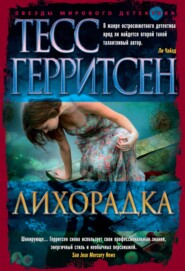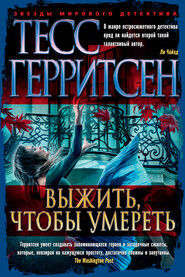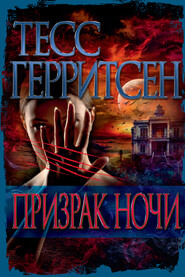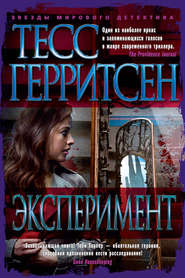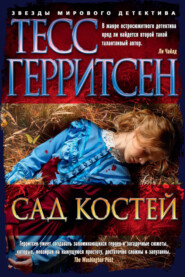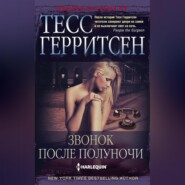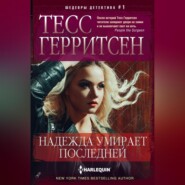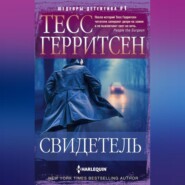По всем вопросам обращайтесь на: info@litportal.ru
(©) 2003-2024.
✖
In Their Footsteps / Stolen: In Their Footsteps / Stolen
Автор
Год написания книги
2018
Настройки чтения
Размер шрифта
Высота строк
Поля
“Hmm? But they’ve been lovely guests. Fit right in—”
“It’s the nasty little barbs flying between them.”
“Oh, that. They’ve always been that way. I scarcely notice it anymore.”
“And have you seen the way Reggie follows Beryl about, like a puppy dog?”
Hugh laughed. “Around a pretty woman, Reggie is a puppy dog.”
“Well, it’s no wonder Helena’s always sniping at him.” Jordan stepped back and regarded his uncle’s bow tie with a frown.
“How’s it look?”
“It’ll have to do.”
Hugh glanced at the clock. “Better check on the kitchen. See that things are in order. And why aren’t the Vanes down yet?”
As if on cue, they heard the sound of querulous voices on the stairway. Lady Helena, as always, was scolding her husband. “Someone has to point these things out to you,” she said.
“Yes, and it’s always you, isn’t it?”
Sir Reggie fled into the study, pursued by his wife. It never failed to puzzle Jordan, the obvious mismatch of the pair. Sir Reggie, handsome and silver haired, towered over his drab little mouse of a wife. Perhaps Helena’s substantial inheritance explained the pairing; money, after all, was the great equalizer.
As the hour edged toward six o’clock, Hugh poured out glasses of sherry and handed them around to the foursome. “Before the hordes arrive,” he said, “a toast, to your safe return to Paris.” They sipped. It was a solemn ceremony, this last evening together with old friends.
Now Reggie raised his glass. “And here’s to English hospitality. Ever appreciated!”
From the front driveway came the sound of car tires on gravel. They all glanced out the window to see the first limousine roll into view. The chauffeur opened the door and out stepped a fiftyish woman, every ripe curve defined by a green gown ablaze with bugle beads. Then a young man in a shirt of purple silk emerged from the car and took the woman’s arm.
“Good heavens, it’s Nina Sutherland and her brat,” Helena muttered. “What broom did she fly in on?”
Outside, the woman in the green gown suddenly spotted them standing in the window. “Hello, Reggie! Helena!” she called in a voice like a bassoon.
Hugh set down his sherry glass. “Time to greet the barbarians,” he said, sighing. He and the Vanes headed out the front door to welcome the first arrivals.
Jordan paused a moment to finish his drink, giving himself time to paste on a smile and get the old handshake ready. Bastille Day—what an excuse for a party! He tugged at the coattails of his tuxedo, gave his ruffled shirt one last pat, and resignedly headed out to the front steps. Let the dog and pony show begin.
Now where in blazes was his sister?
AT THAT MOMENT, the subject of Jordan Tavistock’s speculation was riding hell-bent for leather across a grassy field. Poor old Froggie needs the workout, thought Beryl. And so do I. She bent forward into the wind, felt the lash of Froggie’s mane against her face, and inhaled that wonderful scent of horseflesh, sweet clover and warm July earth. Froggie was enjoying the sprint just as much as she was, if not more. Beryl could feel those powerful muscles straining for ever more speed. She’s a demon, like me, thought Beryl, suddenly laughing aloud—the same wild laugh that always made poor Uncle Hughie cringe. But out here, in the open fields, she could laugh like a wanton woman and no one would hear. If only she could keep on riding, forever and ever! But fences and walls seemed to be everywhere in her life. Fences of the mind, of the heart. She urged her mount still faster, as though through speed she could outrun all the devils pursuing her.
Bastille Day. What a desperate excuse for a party.
Uncle Hugh loved a good bash, and the Vanes were old family friends; they deserved a decent send-off. But she’d seen the guest list, and it was the same tiresome lot. Shouldn’t ex-spies and diplomats lead more interesting lives? She couldn’t imagine James Bond, retired, pottering about in his garden.
Yet that’s what Uncle Hugh seemed to do all day. The highlight of his week had been harvesting the season’s first hybrid Nepal tomato—his earliest tomato ever! And as for her uncle’s friends, well, she couldn’t imagine them ever sneaking around the back alleys of Paris or Berlin. Philippe St. Pierre, perhaps—yes, she could picture him in his younger days; at sixty-two, he was still charming, a Gallic lady-killer. And Reggie Vane might have cut a dashing figure years ago. But most of Uncle Hugh’s old colleagues seemed so, well…used up.
Not me. Never me.
She galloped harder, letting Froggie have free rein.
They raced across the last stretch of field and through a copse of trees. Froggie, winded now, slowed to a trot, then a walk. Beryl pulled her to a halt by the church’s stone wall. There she dismounted and let Froggie wander about untethered. The churchyard was deserted and the gravestones cast lengthening shadows across the lawn. Beryl clambered over the low wall and walked among the plots until she came to the spot she’d visited so many times before. A handsome obelisk towered over two graves, resting side by side. There were no curlicues, no fancy angels carved into that marble face. Only words.
Bernard Tavistock, 1930-1973
Madeline Tavistock, 1934-1973
On earth, as it is in heaven, we are together.
Beryl knelt on the grass and gazed for a long time at the resting place of her mother and father. Twenty years ago tomorrow, she thought. How I wish I could remember you more clearly! Your faces, your smiles. What she did remember were odd things, unimportant things. The smell of leather luggage, of Mum’s perfume and Dad’s pipe. The crackle of paper as she and Jordan would unwrap the gifts Mum and Dad brought home to them. Dolls from France. Music boxes from Italy. And there was laughter. Always lots of laughter…
Beryl sat with her eyes closed and heard that happy sound through the passage of twenty years. Through the evening buzz of insects, the clink of Froggie’s bit and bridle, she heard the sounds of her childhood.
The church bell tolled—six chimes.
At once Beryl sat up straight. Oh, no, was it already that late? She glanced around and saw that the shadows had grown, that Froggie was standing by the wall regarding her with frank expectation. Oh Lord, she thought, Uncle Hugh will be royally cross with me.
She dashed out of the churchyard and climbed onto Froggie’s back. At once they were flying across the field, horse and rider blended into a single sleek organism. Time for the shortcut, thought Beryl, guiding Froggie toward the trees. It meant a leap over the stone wall, and then a clip along the road, but it would cut a mile off their route. Froggie seemed to understand that time was of the essence. She picked up speed and approached the stone wall with all the eagerness of a seasoned steeplechaser. She took the jump cleanly, with inches to spare. Beryl felt the wind rush past, felt her mount soar, then touch down on the far side of the wall. The biggest hurdle was behind them. Now, just beyond that bend in the road—
She saw a flash of red, heard the squeal of tires across pavement. Froggie swerved sideways and reared up. The sudden lurch caught Beryl by surprise. She tumbled out of the saddle and landed with a stunning thud on the ground.
Her first reaction, after her head had stopped spinning, was astonishment that she had fallen at all—and for such a stupid reason.
Her next reaction was fear that Froggie might be injured.
Beryl scrambled to her feet and ran to snatch the reins. Froggie was still spooked, nervously trip-trapping about on the pavement. The sound of a car door slamming shut, of someone running toward them, only made the horse edgier.
“Don’t come any closer!” hissed Beryl over her shoulder.
“Are you all right?” came the anxious inquiry. It was a man’s voice, pleasantly baritone. American?
“I’m fine,” snapped Beryl.
“What about your horse?”
Murmuring softly to Froggie, Beryl knelt down and ran her hands along Froggie’s foreleg. The delicate bones all seemed to be intact.
“Is he all right?” said the man.
“It’s a she,” answered Beryl. “And yes, she seems to be just fine.”
“I really can tell the difference,” came the dry response. “When I have a view of the essential parts.”
Suppressing a smile, Beryl straightened and turned to look at the man. Dark hair, dark eyes, she noted. And the definite glint of humor—nothing stiff-upper-lip about this one. Forty plus years of laughter had left attractive creases about his eyes. He was dressed in formal black tie, and his broad shoulders filled out the tuxedo jacket quite impressively.
“I’m sorry about the spill,” he said. “I guess it was my fault.”
“This is a country road, you know. Not exactly the place to be speeding. You never can tell what lies around the bend.”






